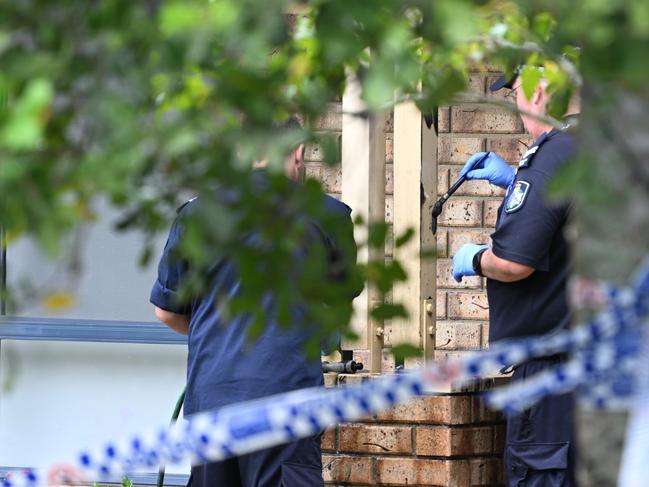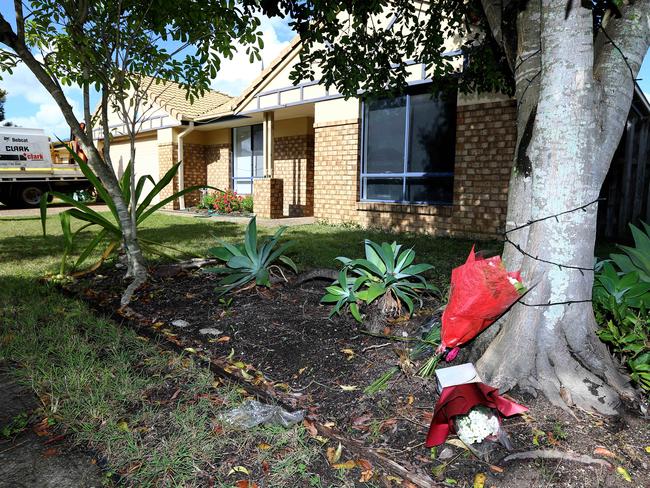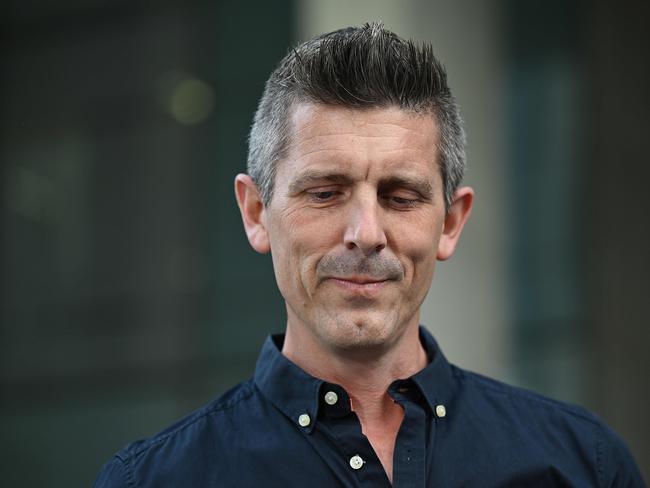Justice Michael Copley returns bombshell verdict for teen charged over the death of Emma Lovell
The grieving husband of Emma Lovell has slammed the decision of a Supreme Court judge in the case of a teen charged over the death of the North Lakes mother.
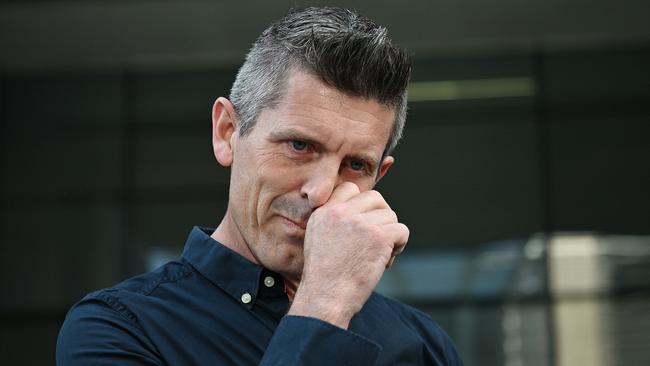
Police & Courts
Don't miss out on the headlines from Police & Courts. Followed categories will be added to My News.
Emma Lovell’s grieving husband has pleaded with the new government to stick to its promise to toughen up youth justice laws after a Supreme Court judge acquitted a child involved in the home invasion that killed his wife.
Justice Michael Copley found the teen not guilty of murder and manslaughter, instead finding him guilty of burglary and assault.
Emma Lovell was stabbed in the heart on the front lawn of her North Lakes home in a shocking break and enter committed by two boys on Boxing Day 2022.
After confronting and forcing the two youths out of their home, the 41-year-old mother-of-two was stabbed by a juvenile offender – who has already been sentenced to 14 years’ jail for murder. He is appealing his sentence.
Widower Mr Lovell was stabbed in the back and kicked in the face by the same youth during the struggle on the front lawn.
The second boy was charged as an accomplice to all alleged offences. He did not wield the knife and was not directly involved in the struggle on the lawn.
He pleaded not guilty to charges of murder, break and enter while armed and in company, unlawful wounding, and unlawful assault.
His legal team argued that he was not guilty of Mrs Lovell’s murder because he did not know the primary offender had a knife.
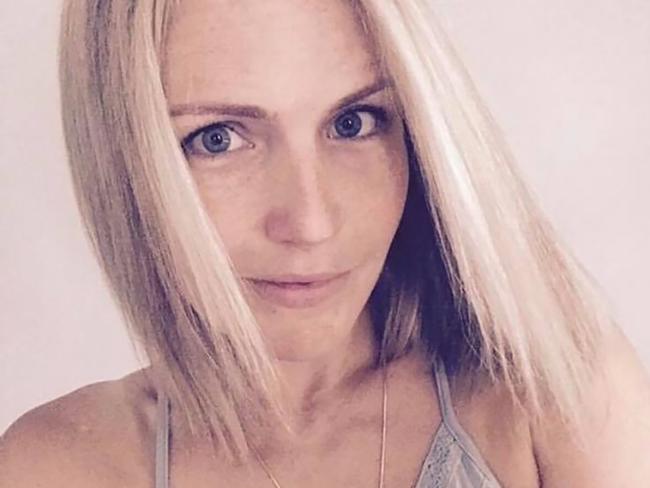
The case went to a three-day judge-only trial last week, with no jury involved over fears the state election campaign was “likely to prejudice a jury” given the intense focus on youth crime laws.
Little more than a week after retiring to consider his verdict, Justice Copley on Thursday found the accused not guilty of murder and the alternative of manslaughter, and not guilty of a malicious act with intent and wounding. The youth was found guilty of burglary and assault.
Speaking outside court, trying to hold back tears, Mrs Lovell’s grieving husband slammed the verdicts.
“I just don’t feel justice for Emma one bit,” Mr Lovell said.
“If you are a part of killing someone and you get off with a burglary charge, what does that say for anyone else going forward?
“They [those responsible] get to carry on doing whatever they’re doing. As other people have said in the past, we are the ones that live with a life sentence and everyone [else] carries on what they’re doing.”
During the trial, the crucial issue in contention was whether the youth knew that the primary offender was carrying a knife.
Crown prosecutor David Nardone said security camera footage from the Lovell’s porch showed that as they entered the home, the youth could be seen turning around and looking directly at the knife in the already-convicted primary offender’s hand.
However, defence barrister Laura Reece – acting for the accused youth – argued that her client only turned partly around in that crucial moment, but not enough to be sure that he definitely saw the knife in the primary offender’s hand as they entered the Lovell’s home.
Ms Reece also emphasised that the Lovell’s security camera recorded in infra-red, and did not truly represent what the human eye could see in the darkness on that fateful night.
In his reasons for the verdicts, Justice Copley concluded that the accused did not fully turn around and did not know that the primary offender had a knife.
“As I could not see the accused’s eyes, and as his head and face did not turn completely back towards where [the primary offender] was with the knife … I cannot be satisfied beyond reasonable doubt that the accused knew that [the primary offender] was in possession of the knife,” he wrote in his decision.
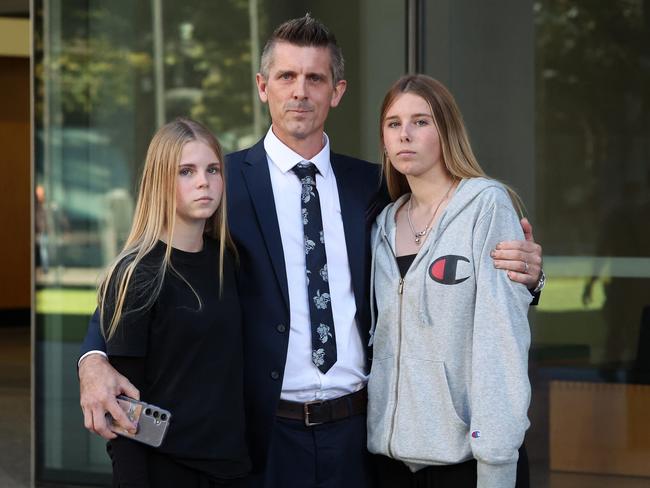
Justice Copley also could not be sure beyond reasonable doubt that there was enough light in the Lovells’ doorway that night to enable the accused to see the primary offender’s knife.
“I am not able to determine whether any of the light available inside the entry area to the house was sufficient to enable the accused to see the knife,” he concluded.
“I cannot be satisfied that any light emitted by his phone was sufficient to allow him to see the knife.”
Mr Lovell sent a clear message for the new LNP government.
“They just need to change legislation, you can’t have people getting murdered and still stick with the ten-year maximum sentence,” he said.
Premier David Crisafulli confirmed parliament would reconvene for the first time since the election on November 26, with further sittings from December 10.
It means the LNP’s marquee “adult crime, adult time” laws – which includes allowing judges to sentence children who commit serious crimes to the same jail time as adults – will go through just a week of the usual scrutiny process, which normally spans six weeks.
The youth will be sentenced on December 4.
